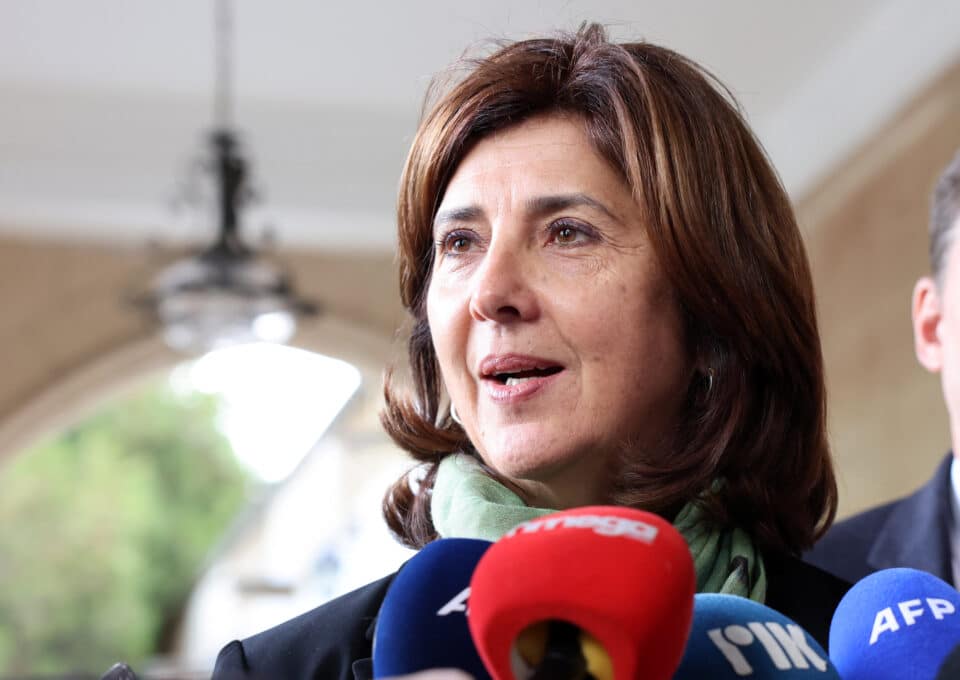English is the language used amongst bicommunal groups, Greek and Turkish Cypriot politicians and negotiators – is it a good thing?
By Ioanna Achilleos Zavitsanaki
While many Cypriots have come to understand the risks of the continuing non-solution of the Cyprus problem, what has been blatantly missing since the last round of failed negotiations in 2017 is any opportunity for a way forward.
This has left civil society increasingly concerned on the one hand but simultaneously frustrated and demotivated on the other hand due to the absence of meaningful context for their work. So, the appointment of Maria Angela Holguin as the UN secretary-general’s personal envoy to Cyprus is a very welcome development.
Pondering the potential actions which could draw on this momentum, one is always conscious, among other things, of the issue of language. A specific observation related to this issue has become increasingly more perceptible to me through my involvement in various discussion forums on the Cyprus problem. I have seen that there are differences in the conversation depending on the language used, some of these differences being more subtle than others.
Once stated, this observation appears rather self-evident on the surface and as such, might be easy to dismiss. However, given the decades of stalemate, realisations such as this are worth acknowledging and exploring at any given time within the wider context of the situation, for possible clues on fruitful steps towards an acceptable solution framework.
On a political level, official talks on the Cyprus problem take place in the English language. This is of course understandable given the presence of foreign representatives, but even if we were to remove foreigners from the equation (just saying), the two sides would still be unable to use their mother tongue. This is because hardly any Greek Cypriot politicians speak Turkish and hardly any Turkish Cypriot politicians speak Greek. This, despite both Greek and Turkish being the official languages of the Republic.
The language barrier also applies on a societal level. So, for bicommunal groups of citizens that actively and routinely engage in conversations around the Cyprus problem, English is inevitably the language of use. Similarly, the majority of NGOs, thinktanks and other relevant organisations are usually bicommunal and foreign funded so, again, much of their work is produced in English. Some organisations do try to work around the language barrier, through the arts and culture for example, but it is not possible to eliminate the issue altogether.
While work is often translated into Greek and Turkish, the translated versions can be a little drier than their originals.
Could it be that the use of a foreign language brings with it a degree of detachment and objectivity that diminishes when one considers the same issue in one’s own language?
Could it be that when translating work for an audience outside the so-called “bicommunal bubble”, one’s heightened sensitivity brings with it a kind of self-censorship? After all, a bicommunal group of people, even a very diverse one in terms of background, political ideology, age, gender, etc, can only be as diverse as the language barrier allows.
Things getting lost in translation aside, what about the conversations spoken directly in our mother tongue by politicians, citizens, the media, etc?
In contrast to the under-developed or under-utilised language of plausibly peaceful ways forward, we have the ever-familiar language used for decades to describe the conflict, including the historical problems, the ongoing deadlocks and the technical pitfalls of a potential solution.
In short, as far as our own language is concerned, we seem to be much better at expressing in it what we don’t want (due to the familiarity of the problems) than what we do want (due to the unfamiliarity of the solution).
One conclusion that can be drawn from the above is that due to the language barrier, some concepts and ideas do not manage to effectively reach the mainstream Cypriot society. So, with this new chapter in the peace process, leaders, facilitators, civil society and other stakeholders would do well to address the issue of language but also other seemingly secondary issues.
Ioanna Achilleos Zavitsanaki is a member of the team of co-creators of the Cyprus Futures scenarios
https://www.cyprusfutures.org/ This article is also being published in Greek







Click here to change your cookie preferences